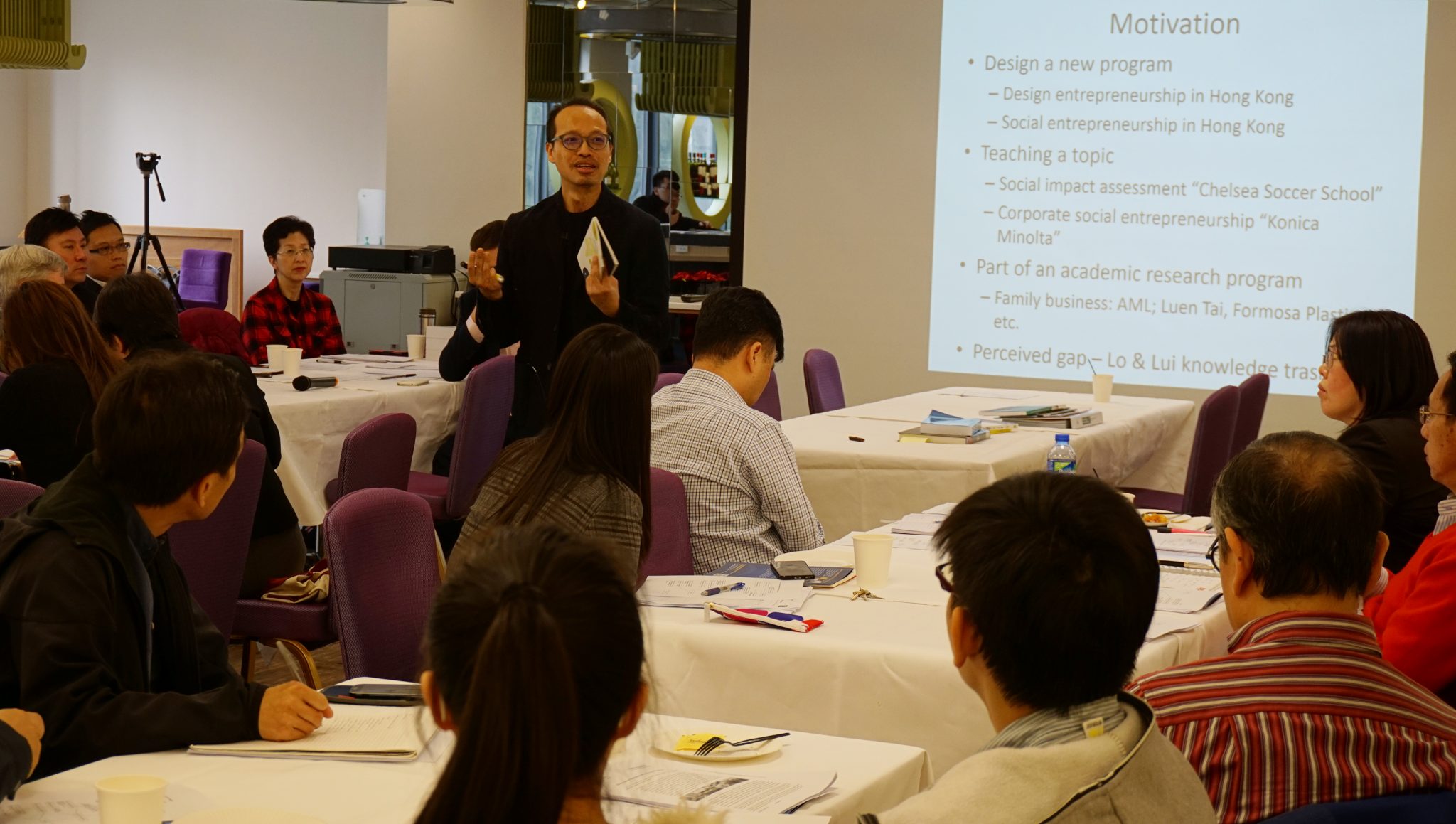Faculty Members Explore Case-based Teaching Approach at Workshop

Case-based teaching approach is a well-known pedagogical method in business education and other disciplines. It is a student-centered discussion-based approach which benefits both students and teachers.
On 27 March 2017, a half-day case teaching and learning workshop was held at the Gastronomy Club for faculty members from The Chinese University of Hong Kong (CUHK) Business School and other local universities. The workshop was organised by our faculty members Dr. Anna Tsui, Dr. Andrew Yuen, Dr. Fred Ku and Mr. Eric Leung, who received a teaching grant for their case teaching and writing project.
The Case Writing Workshop was kicked off with welcome remarks by Prof. Kalok Chan, Dean of CUHK Business School. Afterwards, three experienced speakers were invited to share their area of expertise in case writing: Mr. Jeroen van den Berg, Centre Manager of the Thompson Centre for Business Case Studies at the Hong Kong University of Science and Technology (HKUST); Prof. Terence Tsai, Associate Professor of Management at China Europe International Business School; and Prof. Kevin Au, Associate Professor of Department of Management, Associate Director of Centre for Entrepreneurship, and Director of Centre for Family Business at CUHK Business School.
Mr. van den Berg introduced the case development process and some quick rules on promoting case writing and teaching in universities. Prof. Tsai shared the initial processes of case writing – from case identification, planning, collecting data to drafting. Prof. Au used his experience to explain how to move a case through the publication process and the possible challenges. These provide the participants with valuable opportunities to be upskilled, gain more insights and to share about the case-based teaching and learning approach.
Case-based teaching approach is a well-known pedagogical method in business education and other disciplines. It is a student-centered discussion-based approach which benefits both students and teachers. By engaging students in discussing real-life scenarios, students can put classroom theories into business practice, and refine their analytical skills and business judgement. At the same time, since the writing of case studies involves strong engagement with business executives and professionals, it helps staff and students to strengthen their ties with the business community. These relationships are extremely vital and essential to the well-being of any world-class business school.



